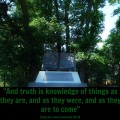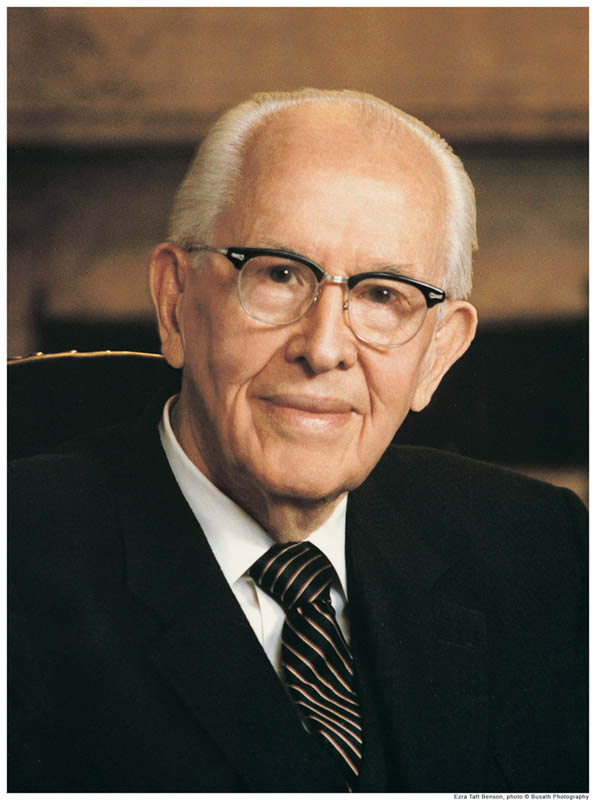In the previous post, we learned that a missionary named Alma, whose story is found in the Book of Mormon, had gone to preach to an apostate group called the Zoramites. He found the wealthy among them engaged in an arrogant, self-centered form of religion, in which they showed up to the synagogue once a week and each, in turn, climbed onto a tower to recite an identical prayer that simply bragged about how chosen and wonderful they were. They came in their expensive clothing and fine jewelry. Once they returned home, they gave no further thought to God until they returned.
In addition, they kept the poor out of the church. Wealth was, in their minds, proof of their specialness, proof that they had been chosen and all others were doomed. Alma, encountering these poor, realized they had been humbled through their trials and longed to be allowed to worship. He decided not to bother with the arrogant wealthy people and instead to preach to the poor.
In this sermon, he gave one of the greatest sermons on faith ever written. The people were upset about being kept out of the temple because they believed this meant they were unable to worship God. Alma assured them you don’t have to be in a church building to worship. Worship was not a once a week event, but a way of life.
Alma explained that signs were not the way to gain faith, because if you know something you don’t need faith and faith is important. “And now as I said concerning faith—faith is not to have a perfect knowledge of things; therefore if ye have faith ye hope for things which are not seen, which are true (Alma 32:21).”
He then points out something many people did not understand, which is that God doesn’t just give His knowledge and wisdom to men, but He also gives it to women. Even young children can receive a testimony of faith.
Alma challenged his listeners to try an experiment: Do the things Alma asks and see what happens. This is one way to gain faith of something. He assured them that if they could do no more than want to believe it would be enough to get them started on the path to a testimony.
28 Now, we will compare the word unto a seed. Now, if ye give place, that a seed may be planted in your heart, behold, if it be a true seed, or a good seed, if ye do not cast it out by your unbelief, that ye will resist the Spirit of the Lord, behold, it will begin to swell within your breasts; and when you feel these swelling motions, ye will begin to say within yourselves—It must needs be that this is a good seed, or that the word is good, for it beginneth to enlarge my soul; yea, it beginneth to enlighten my understanding, yea, it beginneth to be delicious to me.
Alma is telling them how to take the first small steps to a testimony of Jesus Christ, in whom the Zoramites did not believe. He told them that their desire for a testimony was like a seed they could plant in their hearts. If they nurtured that seed, they would begin to feel something special, a swelling in their hearts that would enlarge their souls and lead them to understand more about the Savior. This will tell them they have planted a good seed.
However, this is only a first step. If that seed were to grow to the size of a tree, they would need to nurture it. A neglected tree will not grow properly. How do you nurture a brand new faith?
Alma began by reminding them they do not need to be inside a church building to worship. Even if they were barred from the church, they could worship on their own elsewhere. They should also not squeeze all their worship into a single day. Worshipping God should be a part of everyday life.
Next he talked to them of Jesus Christ. He reminded them the scriptures testified of Jesus and if they read and believed those scriptures, they also had to believe in Jesus Christ, their Savior. He assured them if they made true worship a part of their lives and developed their testimonies of Jesus, their newly beginning seed of faith would develop into a tree.
This sermon applies to us today, as well. We can take a mere desire to know what is true and turn it into a testimony the size of a tree. First, as Alma taught, we have to want to know what is true and to be prepared to accept it even if we don’t like the answer. We must be willing to put God’s truth and His will before our own. The greater our faith, the easier this will be.
Once we have a desire for faith, we can begin to develop knowledge. The poor people of the Zoramites stopped their work and listened as Alma and his companions taught the gospel. Those of us today who want to know what is true need to study the Bible and the Book of Mormon to find out what they really say, not just what others have told us they say.
A person wanting to know if the Mormons have the truth will read this book with a sincere desire to know God’s will. He will pray prior to his study each day and will pray again afterwards—and even in the middle as needed. He will tell God what he thinks and ask God to confirm it for him. A swelling in the heart of peace and joy comes from God. Satan cannot bring true peace or joy. He can only give us a worldly sense of pleasure.
This process can take time, moving from study to prayer and back to study. For some, it is the process of an hour. For others it can take months or even a year or two. The speed of our confirmation from God has nothing to do with our worthiness or how much God loves us. It is simply that God has a timetable for each of us and the process of slowly gaining a testimony can actually be very beneficial.
Our responsibility is to learn the gospel and to experiment by trying to live it the best we can. In that way, we can find out if it enlarges our soul, as Alma put it. If it does, and if God confirms to our heart that we are doing good, we will know what we need to do. But when we ask God to tell us what is true, we must be prepared to act on the answer, even if it’s hard. The answer may not be what we hoped for, but doing what God asked us to do is our responsibility.
There is a great joy that comes from knowing we are following in God’s ways, even when it’s hard. The blessings are eternal, while the sacrifices are only temporal and not worth grieving over.
Experiment on the word. You might be surprised to find out what happens.
The late Terrie Lynn Bittner—beloved wife, mother, grandmother, and friend—was the author of two homeschooling books and numerous articles, including several that appeared in Latter-day Saint magazines. She became a member of the Church at the age of 17 and began sharing her faith online in 1992.







